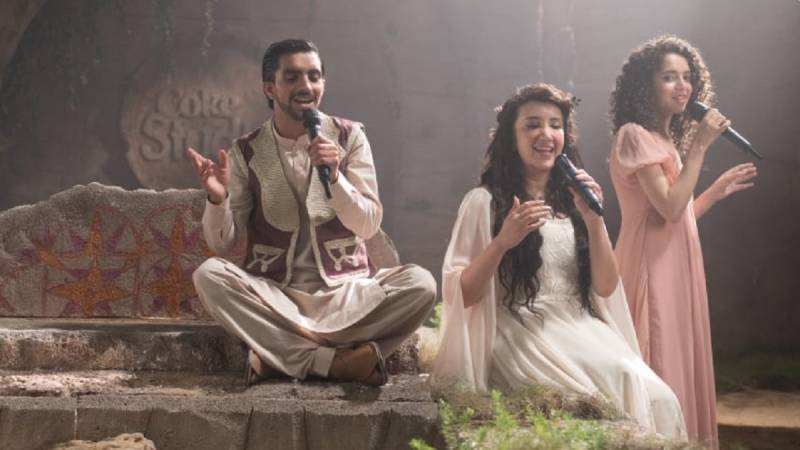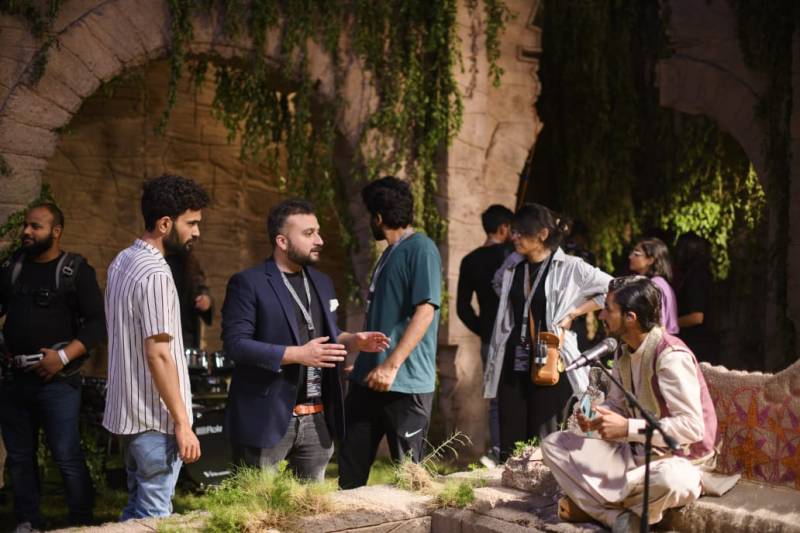
For 19-year-old Nizamuddin Torwali, a shepherd from the upper steppes of Bahrain, in Swat, time spent grazing livestock would tend to become mundane. To while away the time, he would sing ancient 'Pahari' (mountain language) songs. His audience generally used to be his livestock, wild animals, trees and some family and friends.
Having grown up in the remote region of Tape Si Baan in Bahrain, Torwali had never even visited an urban area in his life. But somehow, through the power of social media, his mesmerising and heartfelt voice and the ancient Pahari songs that have been a part of his native culture for centuries, reached far beyond.
He was eventually invited to share his music with the world, and thus began Torwali's maiden journey away from his native village.
Torwali lent his melodious voice and heartfelt songs about the the hospitality of mountainous regions and the impacts of climate change in the recent season of Coke Studio.
In an interview with The Friday Times, Torwali said, "I have a great passion for singing 'Zo or Zjo' (a traditional folk song) since childhood."
"'Zo or Zjo' is sung in gatherings, either on occasions of love, happiness or sorrow," he said, explaining why it is also sung at weddings.
But what is curious is how Torwali was discovered, given that the area he lives in has no access to the internet or event wireless telephone connections.
"Where I live, there is no internet or signals," he said.
Torwali explained that they received some unexpected visitors one day: Abrar Ahmad's brother, Waqar Ahmad, passed through their village together with some foreign guests. To entertain them, Torwali said he sang 'Zo or Zjo' for them.

And this is how word about him left the valley and travelled all the way to Coke Studio.
"I took care of my guests, and therefore, Allah Almighty took care of me," he stated humbly.
What commenced next was something that Torwali had never experienced in his life. First, he had to venture out of his native valley for the first time. Then, he had to travel to the port city of Karachi and witness the Arabian Sea.
"I have spent my entire life in Tape Si Baan, and the environment of Karachi seemed very different for me," he said, adding, "I found the environment there very pleasant."
Recalling the recording for his song, "Mehman" (an ode to how he was discovered) together with female artists Zeb Bangash and Noorima Rehan, Torwali said the producers set up the studio with trees and flowers, reminding him of his native Tape Si Baan.
"I thoroughly enjoyed the environment."
Talking about his song, he said it was created to showcase the mountains and the life of the people who dwell there. He said the area around his native village has been severely affected by environmental changes and floods. We have created this song to save this region, he said.
Culture consultant and set concept designer Malak Abrar Ahmad Khan, told The Friday Times that the language used by Torwali is an ancient and historic language spoken by a small community of 150,000 people who live in a very specific region.
"We introduced Nizamuddin Torwali to the world for the first time from Tape Si Baan, showing that there is no shortage of talent here," Malak said.
He added that they first highlighted Torwali and Tape Si Baan on social media. Then the Coke Studio team contacted them, expressing a desire to work on the culture and the Pahari language. Torwali and I were thrilled that a song in our language would be recorded in Coke Studio for the first time.
Malik told The Friday Times Torwali's story can be compared a little to that of the fictional character Tarzan, who did not know the world outside the jungle until some foreigners discovered him. He added that those who peak the Pahari language and residents of Khyber Pakhtunkhwa take immense pride in Torwali.
"Tape Si Baan is a place that very few people knew about. Now, I can proudly say, Tape Si Baan has become famous the world over, and everyone is talking about Tape Si Baan on various media platforms."

